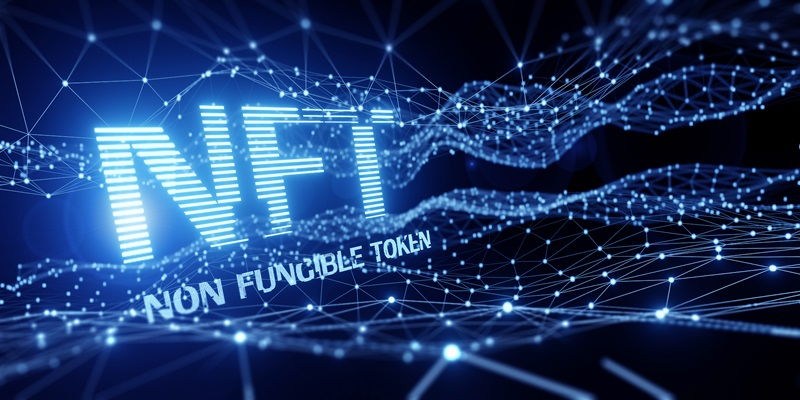NFTs (Non-Fungible Tokens) have emerged as a novel way to enforce value storage, ownership monitoring, and decentralization in the digital realm. However, concerns about their legitimacy and legal status, especially in countries like India, have been raised. In this article, we delve into the world of NFTs, discussing their definition, the legal discussions surrounding intellectual property rights and copyright, challenges with digital ownership, the role of blockchain technology in providing provenance, the issue of copyright ownership, and the legal ramifications of blockchain provenance.
Explaining NFTs
NFTs are digital tokens that represent ownership of any kind of digital property, whether it be artwork, music, collectibles, or virtual real estate. Their uniqueness and indivisibility distinguish them from cryptocurrencies like Bitcoin. Blockchain technology, which powers NFTs, plays a crucial role in providing provenance, ensuring that the ownership history of each token is recorded transparently and cannot be altered.
Legal Discussions on NFTs
The most significant legal discussions surrounding NFTs revolve around intellectual property rights and copyright. NFTs raise questions about who holds the rights to the underlying digital asset and whether the purchase of an NFT transfers the copyright to the owner. As NFT-related legal conflicts emerge, they shed light on the complexities and challenges associated with digital ownership and the need for legal clarification.
Challenges with Digital Ownership
NFTs have brought attention to the difficulties associated with digital ownership. The fact that digital assets can be easily duplicated and shared poses a challenge for establishing clear ownership rights. Legal frameworks and safeguards must be put in place to protect the rights of both buyers and producers in the NFT space. This requires addressing issues such as provenance, contract enforcement, and dispute resolution.
Provenance and Blockchain Technology
The aspect of provenance, which is crucial in establishing the authenticity and ownership of digital assets, is provided by the underlying blockchain technology powering NFTs. Blockchain acts as an immutable ledger, recording every transaction and verifying the authenticity of each NFT. This transparency and traceability play a vital role in ensuring trust and validating ownership claims.
Copyright Ownership and NFTs
One of the key concerns surrounding NFTs is whether the purchase of an NFT transfers the copyright to the owner. Currently, the copyright of the underlying artwork or digital asset is not automatically transferred with the purchase of an NFT. The only right the NFT owner holds is the right to reproduce and distribute copies of it. This raises questions about the rights and responsibilities of both creators and buyers in the NFT ecosystem.
Legal Ramifications of Blockchain Provenance
The acceptance of blockchain-based provenance as proof in copyright cases and court proceedings has significant legal ramifications. Courts and legal systems are grappling with acknowledging blockchain records as admissible evidence in disputes involving digital assets. As the use of NFTs expands and their importance grows, establishing a legal framework that recognizes and respects blockchain provenance becomes essential to ensure fair and just outcomes.
The rise of NFTs has prompted discussions about legality, copyright ownership, and the challenges of digital ownership in the digital age. While NFTs offer unique opportunities for creators and collectors, legal clarity and protection are essential to safeguard the rights of all stakeholders. It is imperative to develop a comprehensive legal framework that addresses the intricacies of NFT ownership, copyright, provenance, and dispute resolution. Only with proper legal clarification can the potential of NFTs be fully realized, while ensuring trust, transparency, and fairness in the ever-evolving digital landscape.

